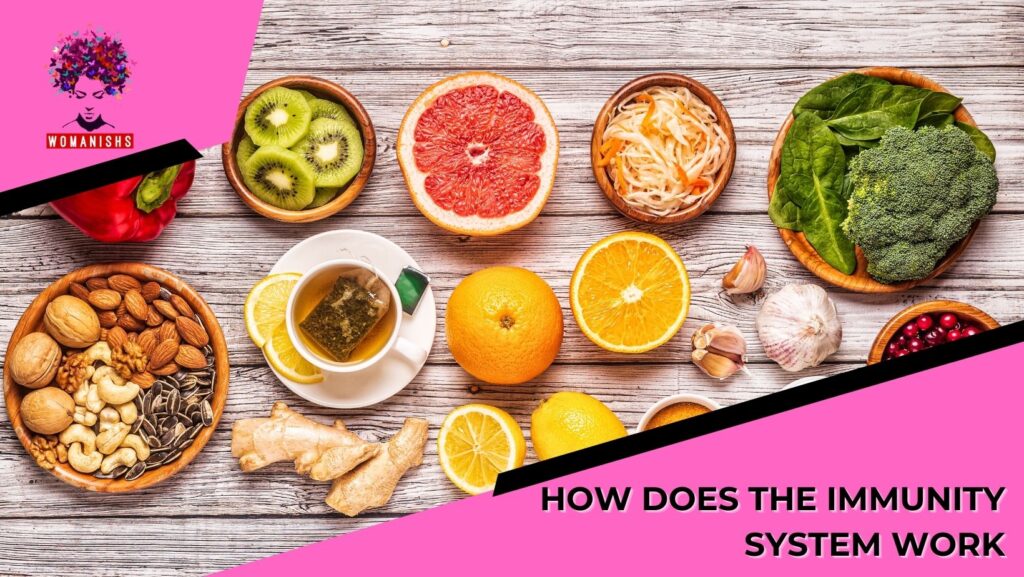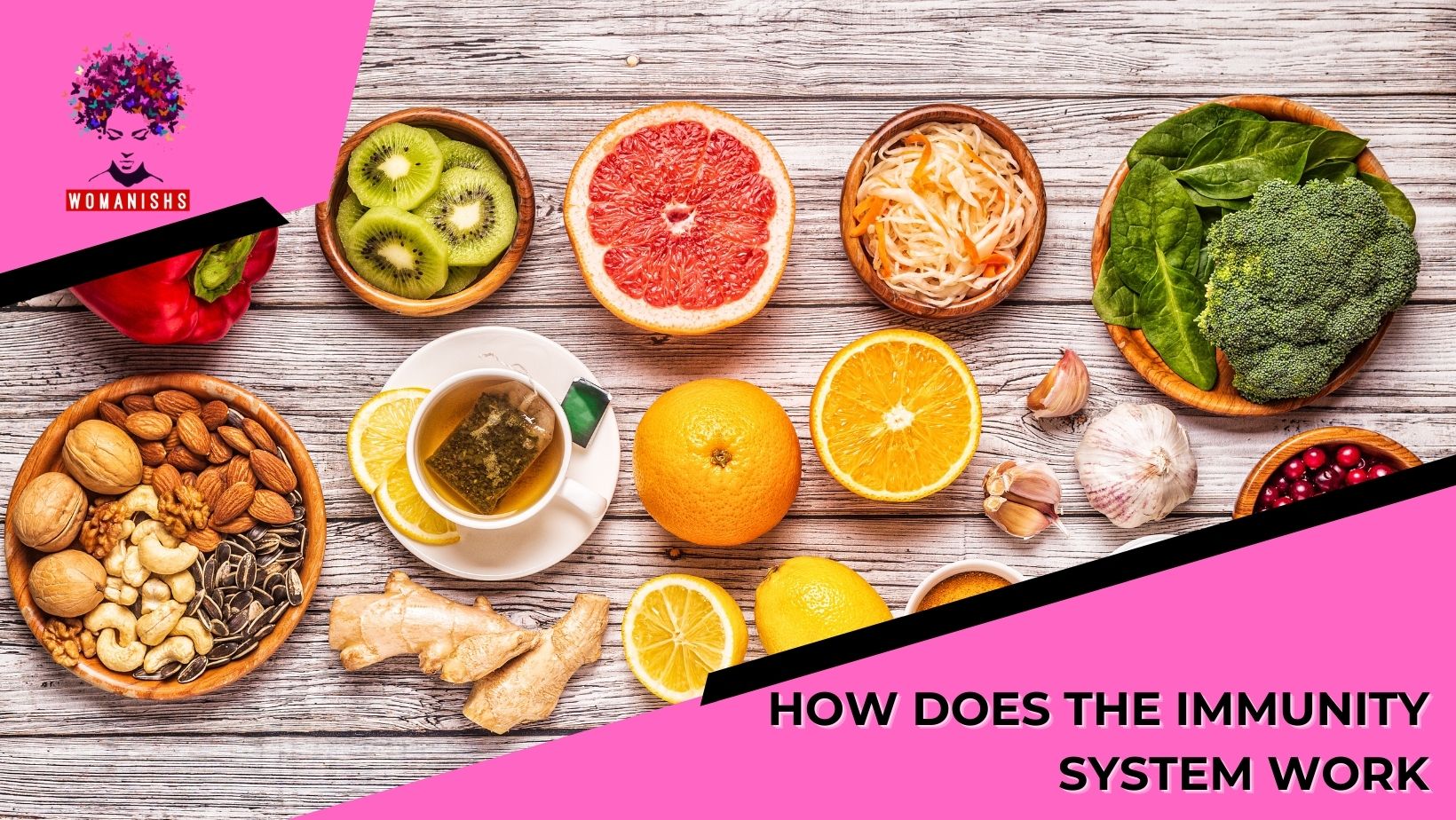Your child’s immune system helps protect them from external invaders like bacteria, viruses, fungi, and toxins (chemicals made by microbes). It is composed of many organs, cells, proteins, and proteins that work together. Let’s discuss How does the Immunity System work.
How does the Immunity System work
The immune system is composed of two major parts:
- Your innate immune system is what you were born with.
- Your body becomes more susceptible to chemicals or microbes through your adaptive immune system.
These two immune systems are interconnected.
The natural immune system
Read More: How to use Cardamom For Weight Loss
This is your child’s emergency response system. It monitors your child’s body, and it is the one that responds to invaders. Your child’s innate immune system is an inherited trait, and it is active right from birth.
This immune system responds immediately to an intruder when it recognizes them. These immune system cells surround and engulf the invader. The immune system cells kill the invader. These cells are known as phagocytes.
The acquired immune system
With the help of the innate immune system, the acquired immune system produces antibodies to protect your body against a particular invader. After the body is exposed to the invader, cells known as B lymphocytes create these antibodies.
Your child will keep the antibodies in their body. Antibodies can take up to several days to form. The immune system will eventually recognize the invader and fight it off after one exposure. Your child’s immune system will change throughout their lives.

Immunizations teach your child to create antibodies that protect them from dangerous diseases.
How does the immune system function?
Your immune system plays a crucial role in protecting your body against harmful substances, germs, and cell changes that can make you sick. It is composed of many organs, cells, and proteins. How does the Immunity System work?
You won’t even notice it is there as long as your immune system works well. If your immune system stops functioning properly or cannot fight particular aggressive germs, you will likely get sick. Some germs can only make you sick the first time they are introduced to your body. These germs include chickenpox and other childhood diseases.
The immune system’s tasks
We would not be able to fight off harmful substances from the outside and harmful changes inside our bodies without an immune system. The major tasks of the immune system are
- Fight disease-causing germs (pathogens), such as bacteria, viruses, parasites, or fungi.
- To recognize and neutralize harmful substances in the environment.
- To fight diseases-causing changes in your body, such as cancer cells.
How is the immune system activated?
Many things can activate the immune system, including those that the body does not recognize as itself. These are called antigens, and Antigens are found on viruses, bacteria, and fungi.
When these antigens attach to immune cells (cells of the immune system), the body activates many processes. The body usually has information on fighting pathogenic bacteria when first contacted.
Upon contact with the germ again, it can recognize the germ and fight faster. Proteins are also found on our cells’ surface; however, these proteins usually do not cause the immune system to attack cells.
The immune system can mistakenly believes that cells
in the body have foreign cells. The immune system then attacks harmless healthy cells, which is known as an autoimmune response.
List of Important Supplements used to boost your Immunity System :
These supplements can be taken as whole foods or as pills, and they may also help keep your immune system strong and healthy to fight coronavirus. Again, the benefits are only theoretical.
- Astragalus
Astragalus is a herb, and its root can be used in medicine. IT is used to treat upper respiratory infections, the common flu, seasonal allergies, and swine influenza, and it can also be used to combat bacteria viruses.
- Elderberry
Elderberry syrup has antiviral, anti-inflammatory, and antibiotic properties. It is used to treat colds, cases of flu, and bacterial infection. The swelling in the mucus membranes is reduced by elderberry.
Keep your immune system strong
Studies have shown elderberry extract may reduce the severity of flu symptoms, and this is why some believe that it may help protect your body against the coronavirus (COVID-19).
- Licorice root
A gargle made from licorice root may help relieve the symptoms of coronavirus. You can also chew some licorice root and drink it as tea.
- Pelargonium sidoides
Other names include Umckaloabo. Pelargonium sidoides, also known as Umckaloabo, are often taken orally for upper respiratory infections such as bronchitis and sinusitis. Sore neck, tonsillitis, and the common cold.
After 10 days of treatment, a specific extract from pelargonium sidoides appears to reduce symptoms and clear up common cold symptoms. The symptoms of bronchitis are also reduced in adults after 48 hours.
What are the benefits of antibiotics in fighting infections?
To help your child fight bacteria-related infections, antibiotics may be prescribed. For infections caused by viruses, however, antibiotics won’t work.
Antibiotics are designed to kill certain bacteria. An antibiotic that is effective for treating a skin infection might not effectively treat diarrhea caused by bacteria.
Antibiotics used to treat viral infections can make bacteria resistant so that they won’t be as effective in the future.
Antibiotics must be taken exactly as directed and given for the correct time. The Antibiotics should not be stopped too early, and the bacteria could become resistant, and then the infection can return.







